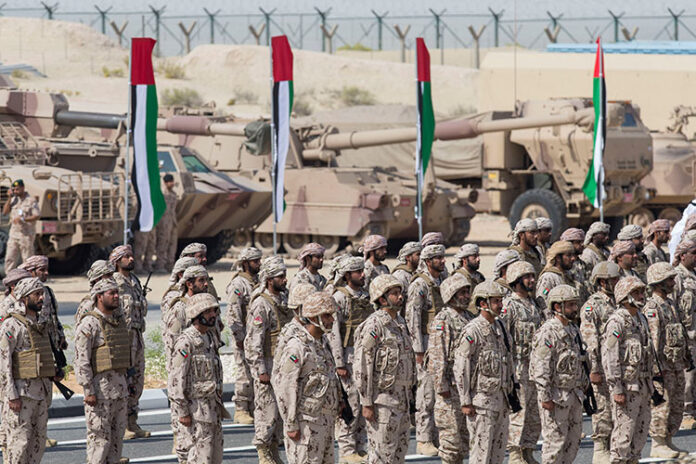Authors: Melissa Dalton, Hijab Shah
Affiliation: Center for Strategic and International Studies (CSIS)
Organization/Publisher: Carnegie Middle East Centre
Date/Place: Jan 12, 2021/Beirut, Lebanon
Type of Literature: Working Paper
Number of Pages: 22
Keywords: UAE’s Military, Foreign Security, Military Professionalism, GCC, Middle East.
Brief:
Melissa Dalton and Hijab Shah identify the attention that the UAE’s military has gained recently from its increasing role in countering Iran and others in the region besides its interventions in Yemen and Libya. However, this reputation mainly has been achieved by depending on mercenary and foreign auxiliary forces. Accordingly, the authors argue that the UAE should capitalize on these developments and seek a professionalized military by building its strategic planning capabilities and committing to international principles of professional military conduct including transparency and accountability. If the UAE manages to accomplish that, it will better match its ‘defense priorities’ with ‘resourcing’ as well as maintain its legitimacy domestically, regionally and internationally. The authors recommend several steps for the UAE to professionalize its military and sustain its security cooperation partnerships including investment in strategic planning capabilities, investment in joint defense research, and building a technology security. The authors highlight three principal priorities for the UAE military, which are confronting the Iranian threat in the region especially in Yemen and the strait of Hormuz, maintaining the status quo in the Middle East, particularly against the resurgence of extremist political and terrorist groups such as Al-Qaeda and the Islamic State, and remarkably increasing its military self-reliance in the two areas of defense industry and personnel capacity. The authors help the reader understand the UAE’s military effectiveness by analysing its main categories: its policy and doctrine; equipment, training, education, and exercises; operations; and institutions. To sum up, the UAE has succeeded in building one of the most capable militaries in the region, however, to sustain the progress it has purchased and secure its objectives in the region as a professional military that could preserve its foreign partnerships, it should follow several reforms. First, The UAE should invest in strategic planning capabilities to manage its priorities and objectives according to its resourcing. Continuing its dependence on mercenary forces would negatively affect its effectiveness and efficiency in the long term, and could erode its security cooperation partnerships. Second, the UAE should professionalize its military by developing transparency and accountability through endorsing the Law of Armed Conflict and human rights principles. This reform, if applied, would remarkably increase its military’s legitimacy inside and outside of the UAE. Finally, it should trace joint development projects for attaining new military technologies.
By: Yomna Süleyman, CIGA Research Assistant




